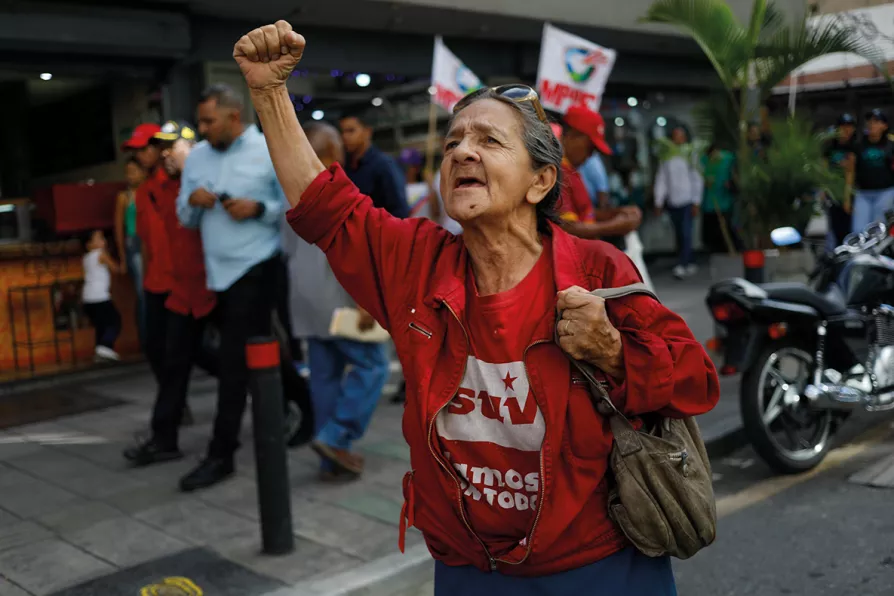As women dominate public services yet face pay gaps, unsafe workloads and rising misogyny, this International Women’s Day and TUC Women’s Conference must be a rallying point, says ANDREA EGAN

 A woman in the shirt of the ruling PSUV party protests over US attempts to isolate allies of Venezuela’s government with economic sanctions, Caracas 2019
A woman in the shirt of the ruling PSUV party protests over US attempts to isolate allies of Venezuela’s government with economic sanctions, Caracas 2019
WITH house 4,400,000 handed over on December 29 to another happy family, President Nicolas Maduro gave tangible confirmation that 2022 was a positive year for Bolivarian Venezuela.
Between 1999 and 2010 Venezuela’s government built 593,198 homes and for the 2011-15 period 701,250 more, making a total of 1,294,448 new houses for the poor.
This means 3,105,552 houses were built between 2015-22, double the amount built in the preceding 1999-2015 period in half the number of years.

International solidarity can ensure that Trump and his machine cannot prevail without a level of political and economic cost that he will not want to pay, argues CLAUDIA WEBBE

Colombia’s success in controlling the drug trade should be recognised and its sovereignty respected, argues Dr GLORY SAAVEDRA

US baseless accusations of drug trafficking and the outrageous putting of a bounty on a president of a sovereign country do not bode well, reports PABLO MERIGUET

FRANCISCO DOMINGUEZ says the US’s bullying conduct in what it considers its backyard is a bid to reassert imperial primacy over a rising China — but it faces huge resistance










